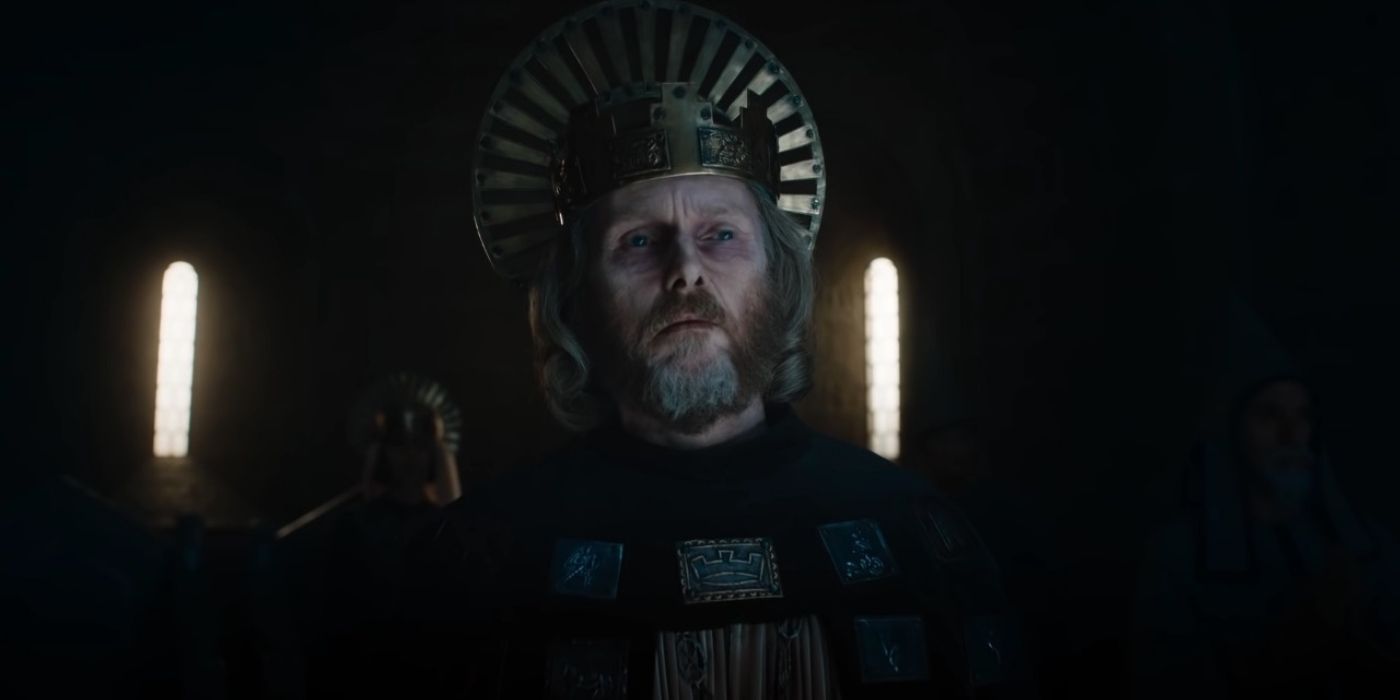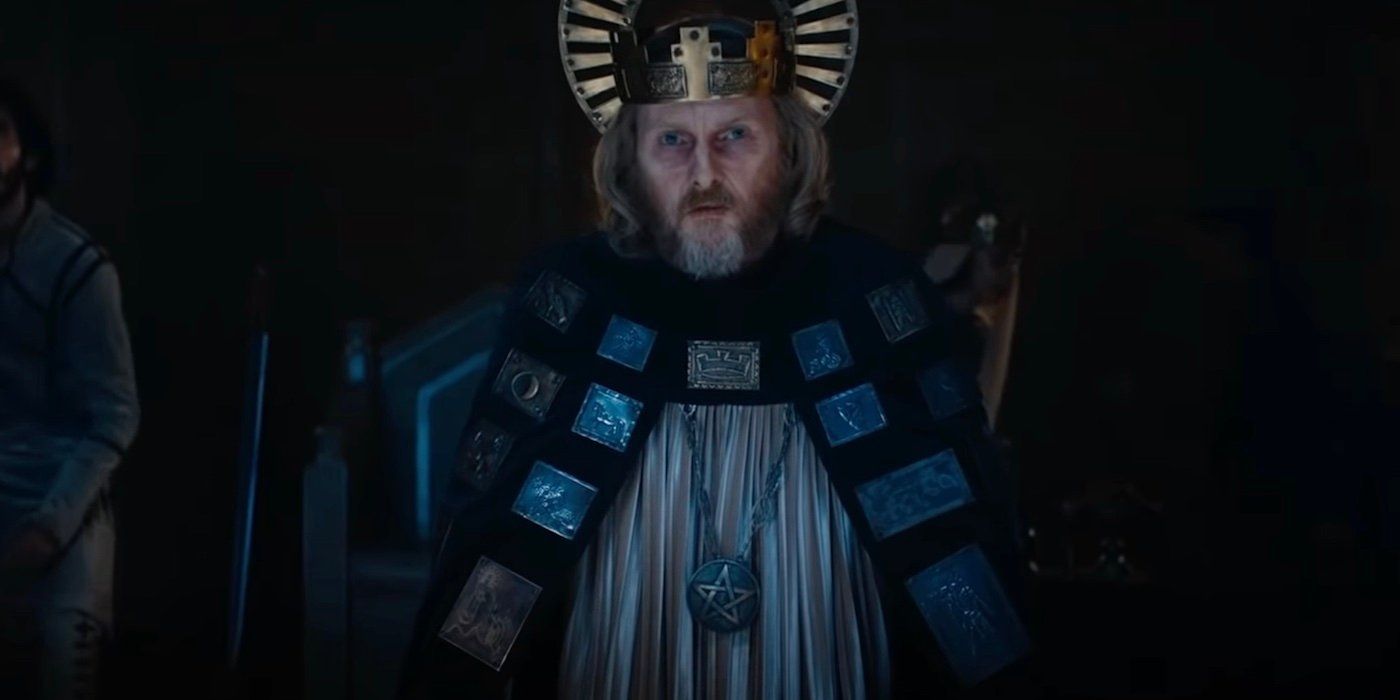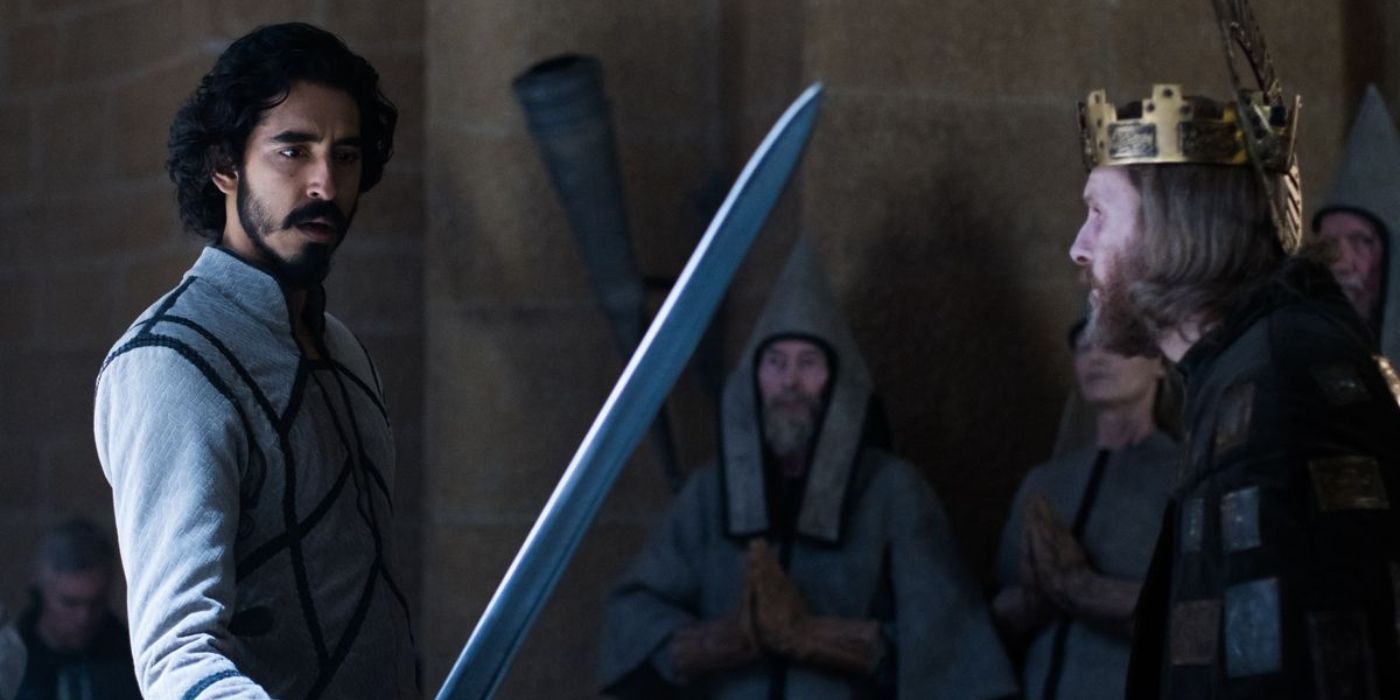
WARNING: The following contains spoilers for The Green Knight, in theaters now.
King Arthur is one of the most indelible characters in western fiction. The "rightful King of England," the character has existed in the global pantheon of legendary heroes since the Middle Ages. As such, there have been numerous adaptations of the character to film over the years -- ranging from the inspirational (The Sword & The Stone), to the epic (Excalibur), to even the farcical (Monty Python's Holy Grail). The legends associated with him have been translated into all kinds of genres, each one tweaking the character to better suit the time and story.
But there is typically some connective tissue between all the incarnations of Arthur, such as their noble intentions, head-strong youth, honorable restraint and human failings. The King Arthur (Sean Harris) of The Green Knight eschews the traditional Arthur, and instead focuses on an older version of the King -- making him a perfect mentor and contrast to the story's central character, Gawain (Dev Patel).

Harris' Arthur is mature and soft-spoken. He's openly kind to Gawain, and regrets not being there as his uncle for more of his life. But he speaks with authority and a forceful gaze, commanding his knights as a matter of fact instead of inspiring them with speeches. It's an almost reserved Arthur, one who has felt the years weighing on him. There's an inherent kindness and noble attitude to him and his actions throughout, such as when he casually lends Gawain the legendary Excalibur for his duel with the Green Knight. It receives a reverent appearance in the visuals, but Arthur himself makes no distinction of its status and instead offers it willingly as a friend -- but quietly and forcefully asks for it to be returned.
It's a clever way to portray the king, giving him a distinctly human but still remarkably kingly role in the story. This puts Arthur almost into the mentor-esque role that Merlin has typically played in modern-renditions of the Arthurian stories. It allows him and his influence to be a part of the narrative without risk of overtaking it or overshadowing Gawain. In fact, it benefits Gawain's story immensely. His ideals of becoming a knight and an honorable man are shaped by his attempts to impress and imitate Arthur. The Green Knight is grounded in his physical and spiritual journey to become a man in his and Arthur's eyes. Having Arthur as a more active figure could have taken away the focus from Gawain's story, and could have removed much of the agency that drives Gawain in this film to become such a noble man.

It's also, interestingly, something that Gawain must overcome in his weakest moments. When he imagines fleeing the Green Knight and returning to Camelot, he sees himself return home and is accepted by Arthur -- to the point that when Arthur passes from this world ingloriously in his own bed, Gawain is made king. But because he has failed his tests of honor, Gawain does not rule as Arthur did, with peace and apparent happiness within the public. Instead, he is cold and disconnected, presiding over the sacking of Camelot before his own death. In failing to become someone like Arthur, even in his most fearful moments, Gawain realizes he would not only fail himself and his uncle, but the dream that Arthur defined.
It's an incredibly effective way to portray the king without allowing him to overshadow the rest of The Green Knight. This places Arthur in a more interesting position as the mentor on the sidelines rather than being the natural hero of the story, and it all comes together as arguably the best incarnation of Arthur on screen in quite some time.
Fans can see Sean Harris as King Arthur in The Green Knight, currently playing in theaters.
0 Comments